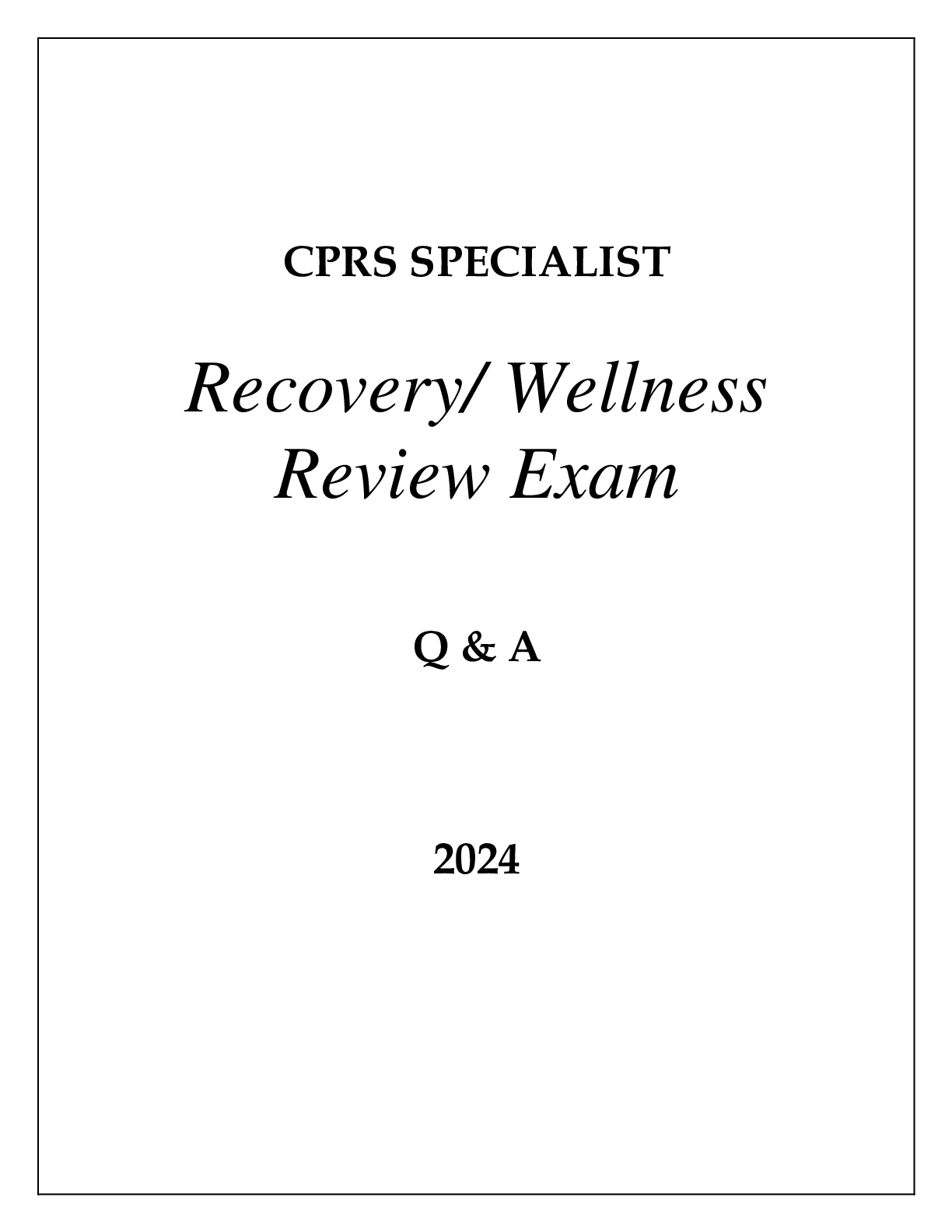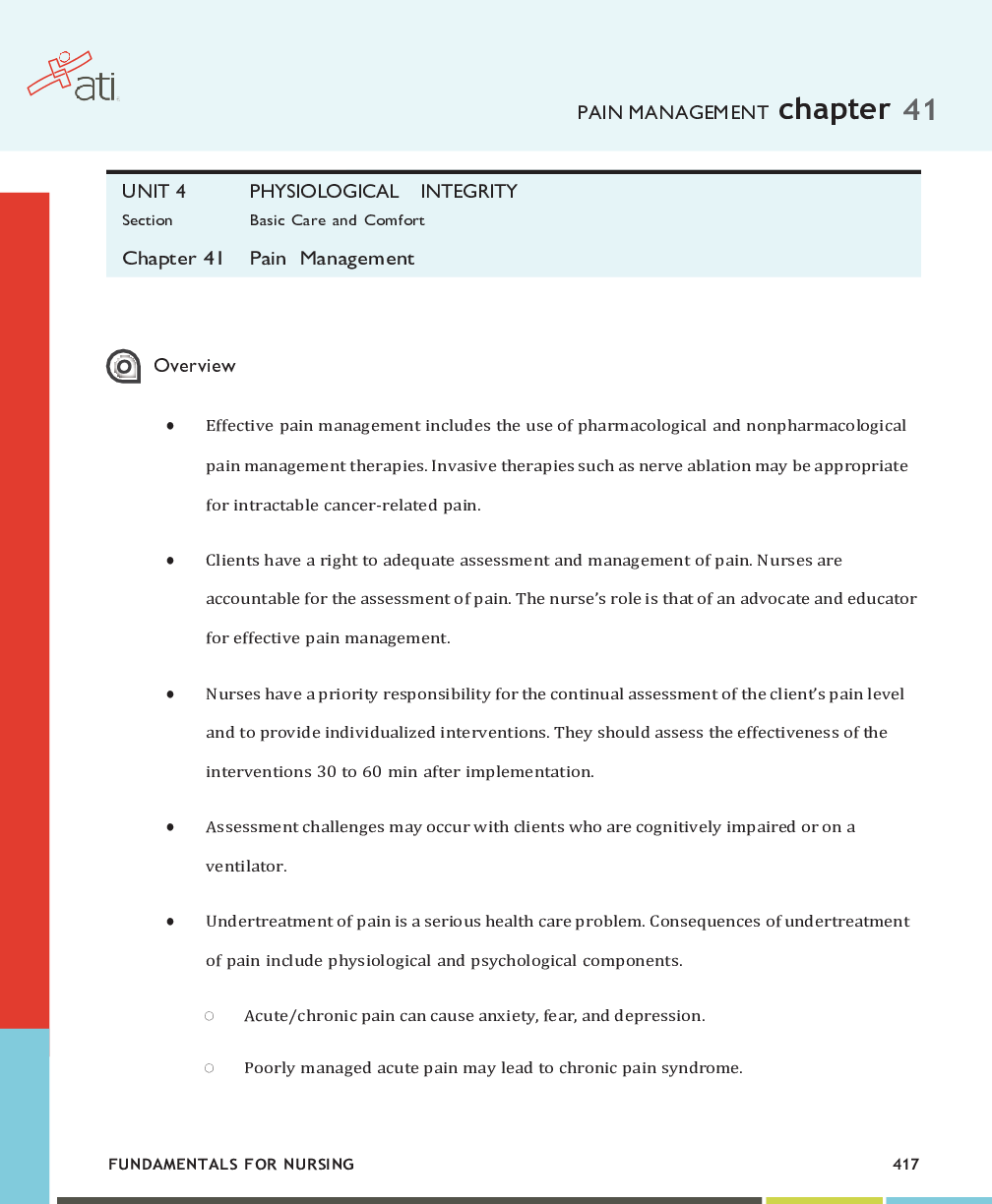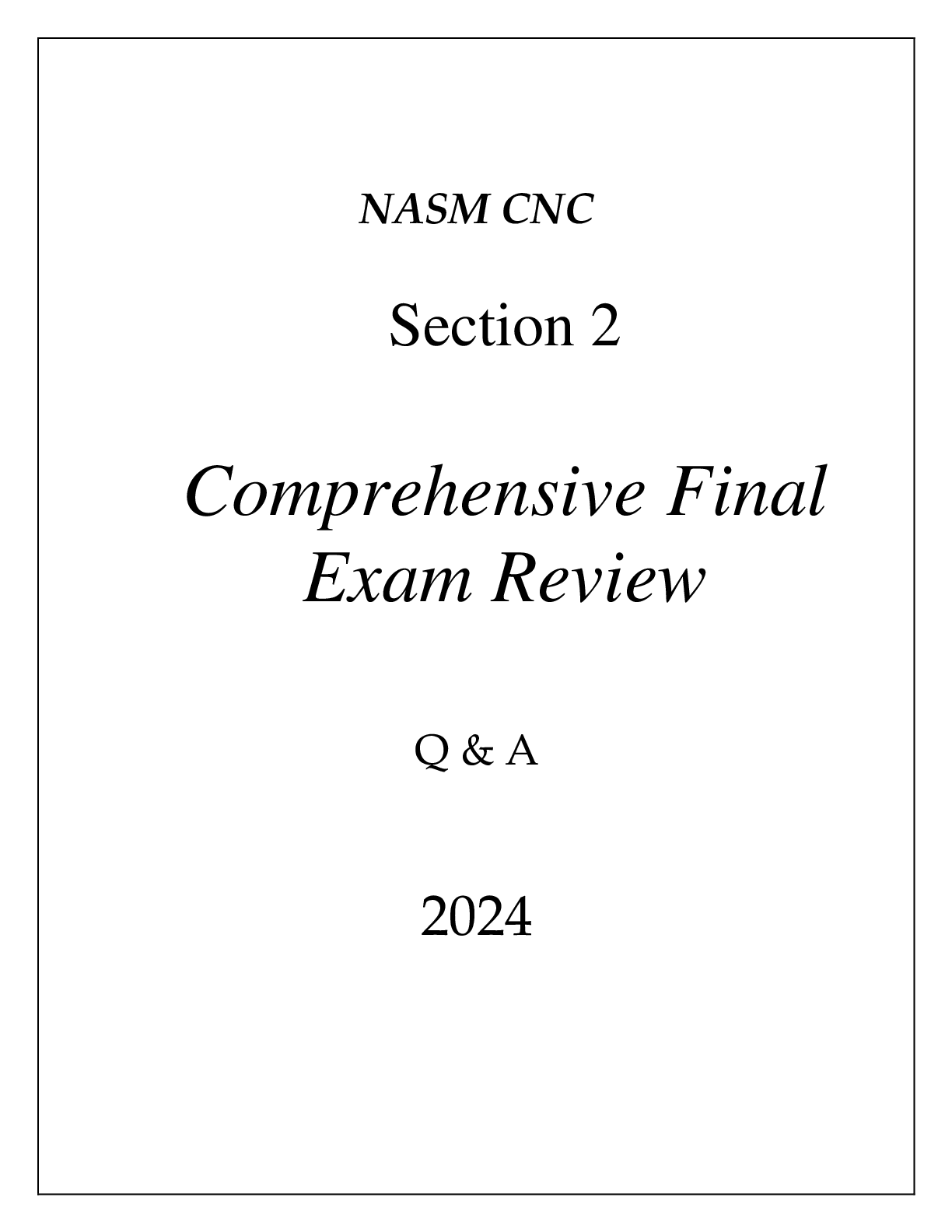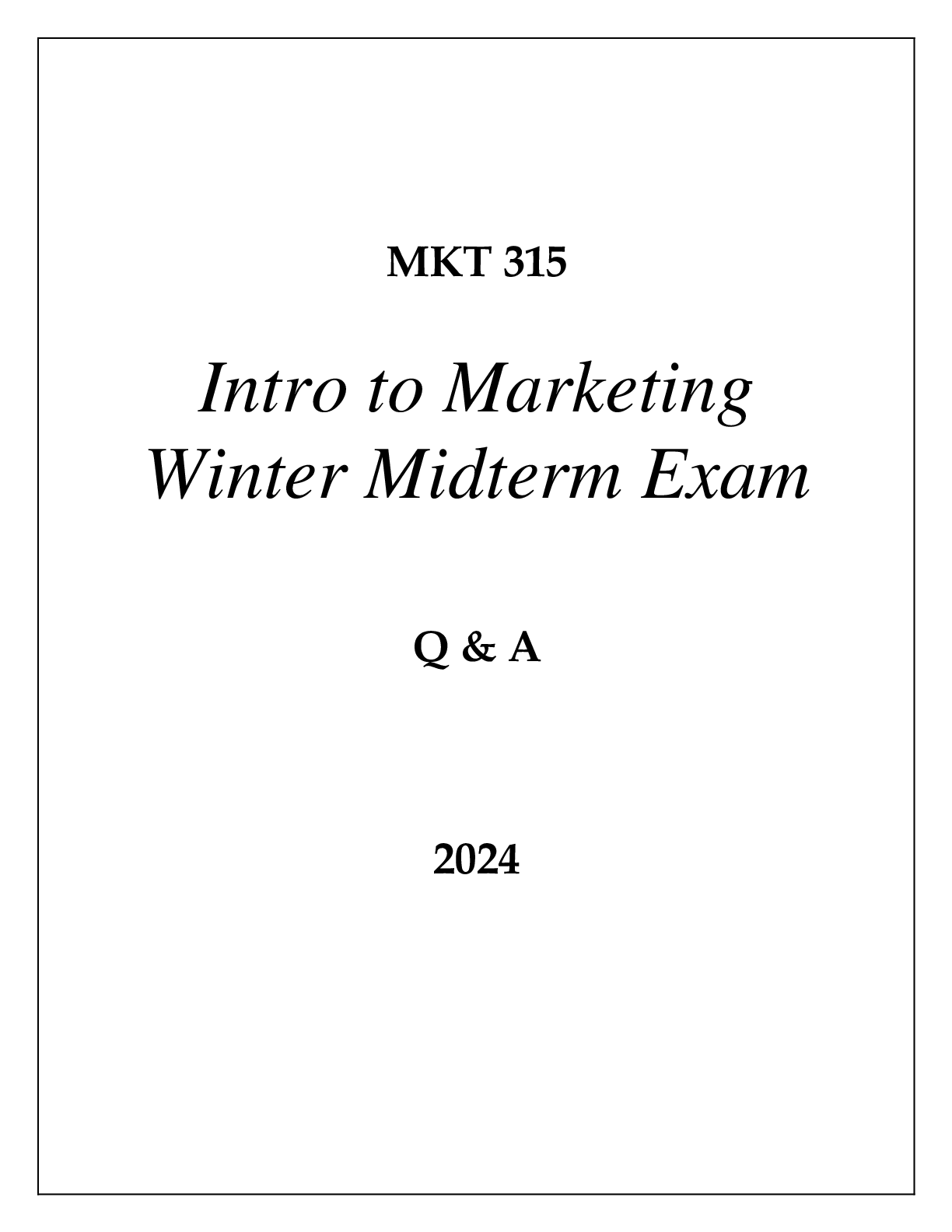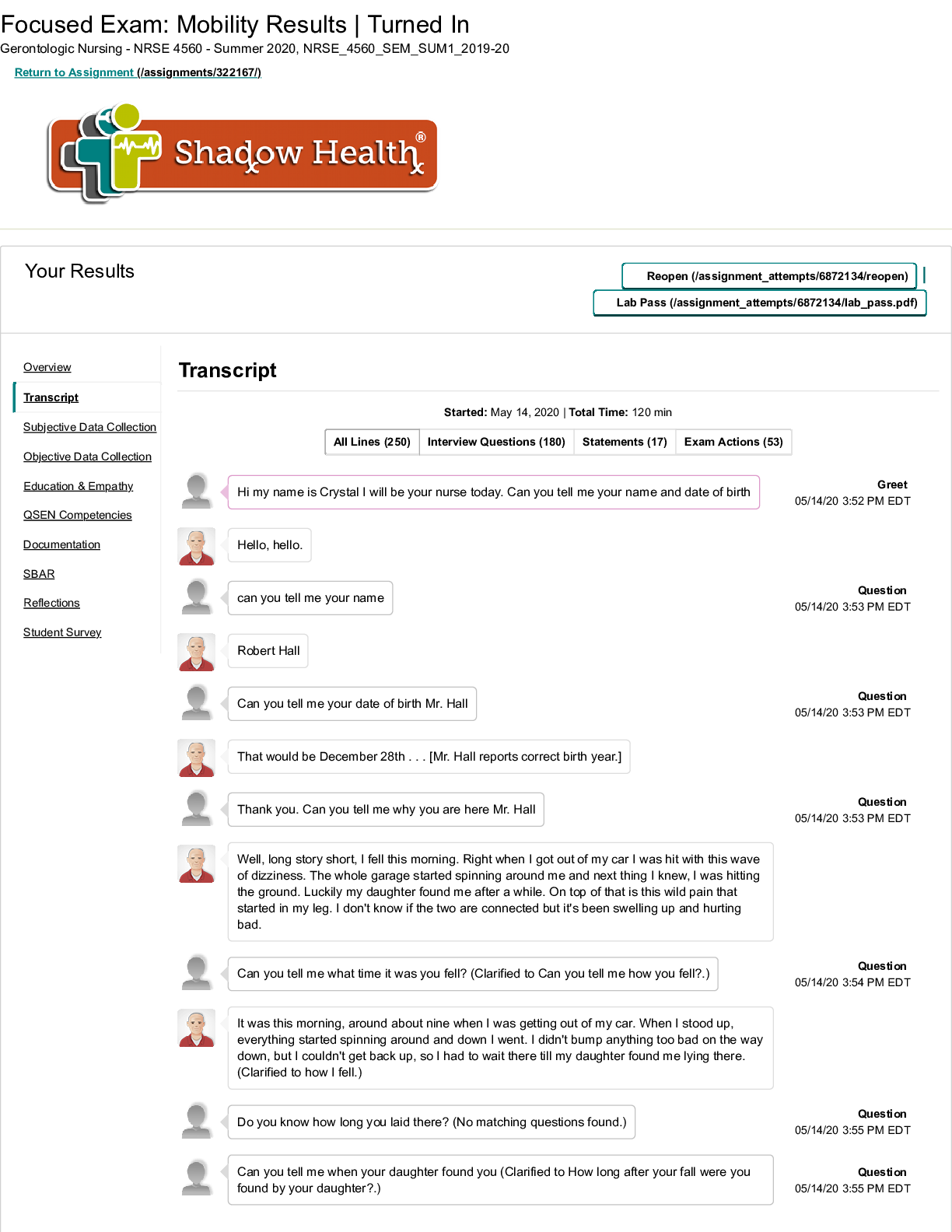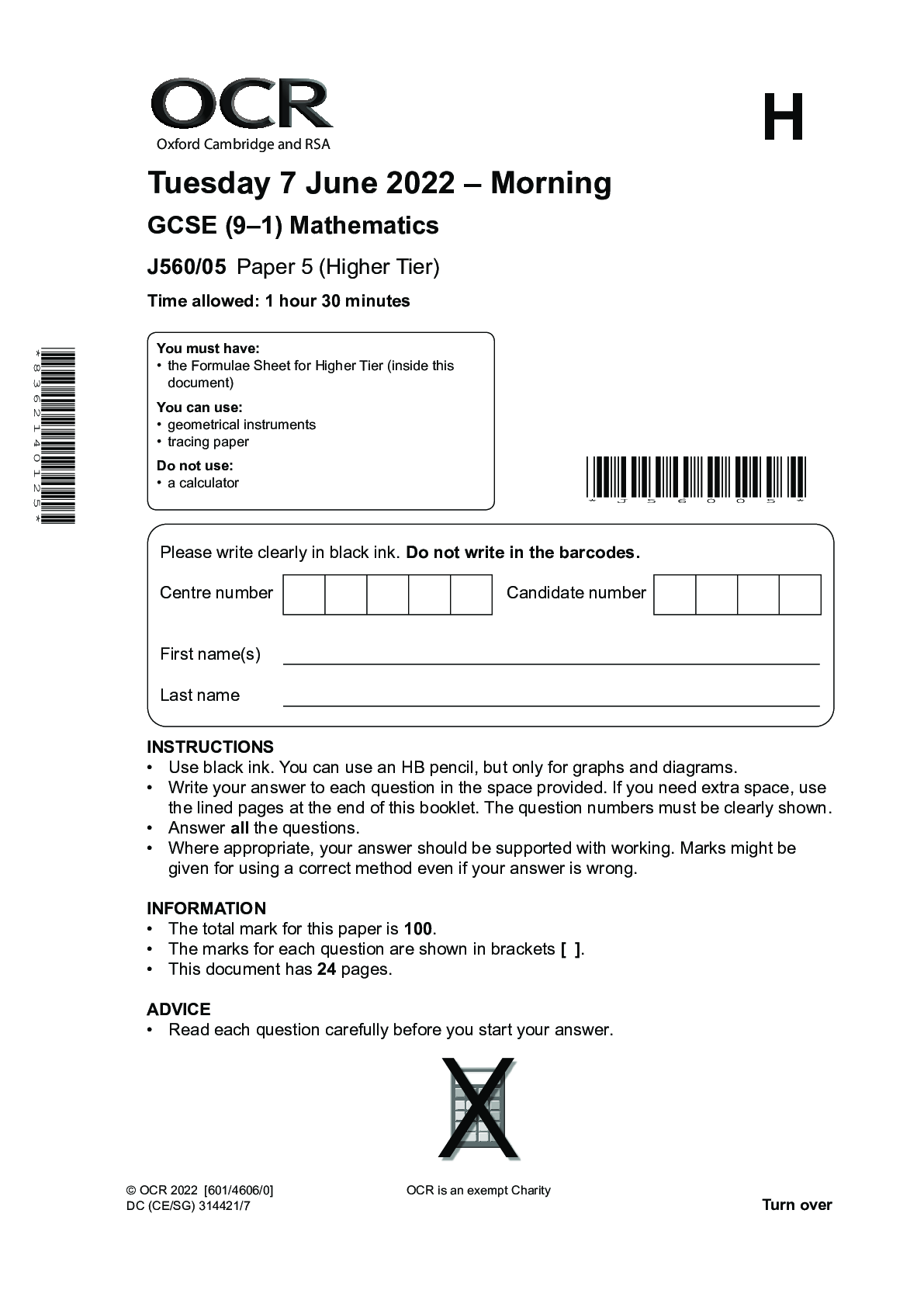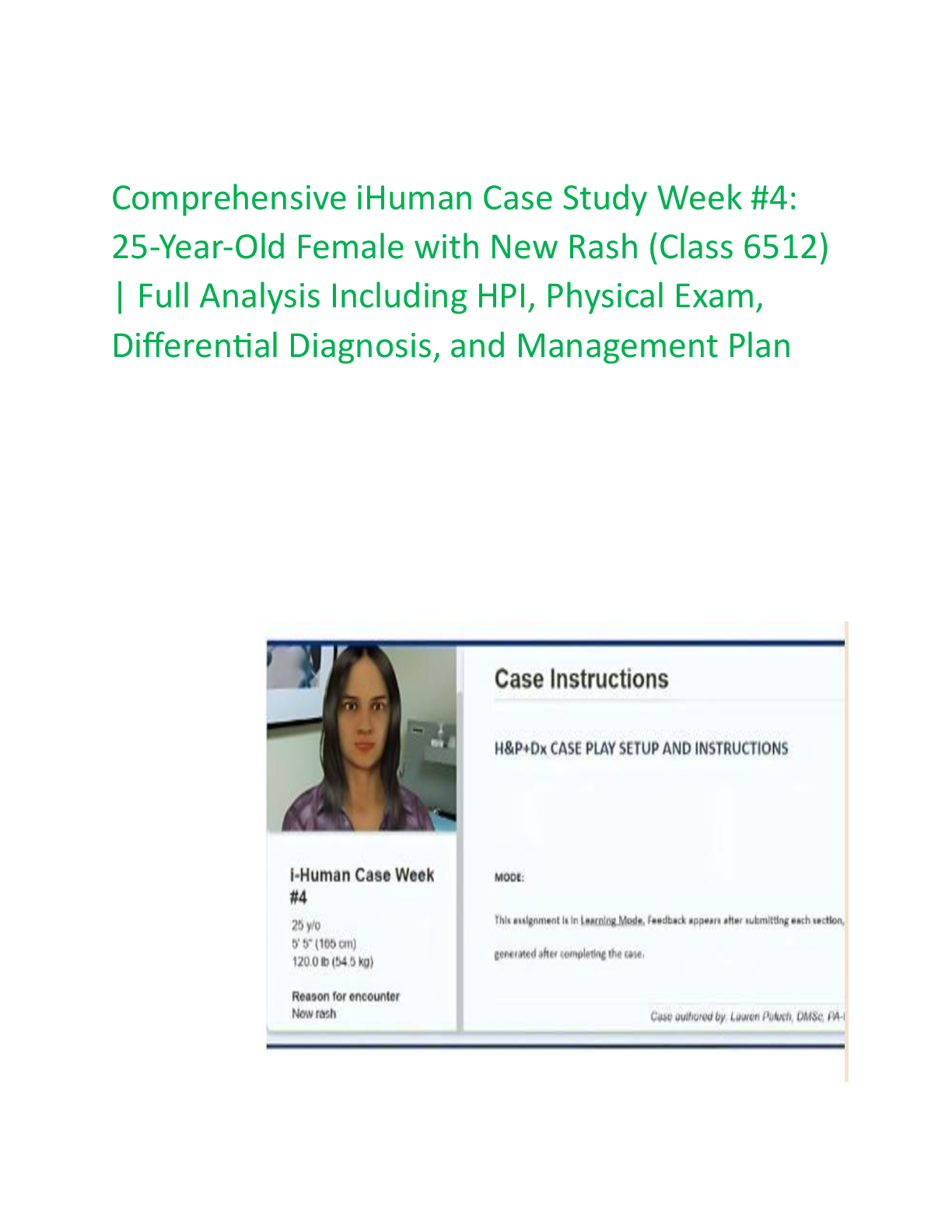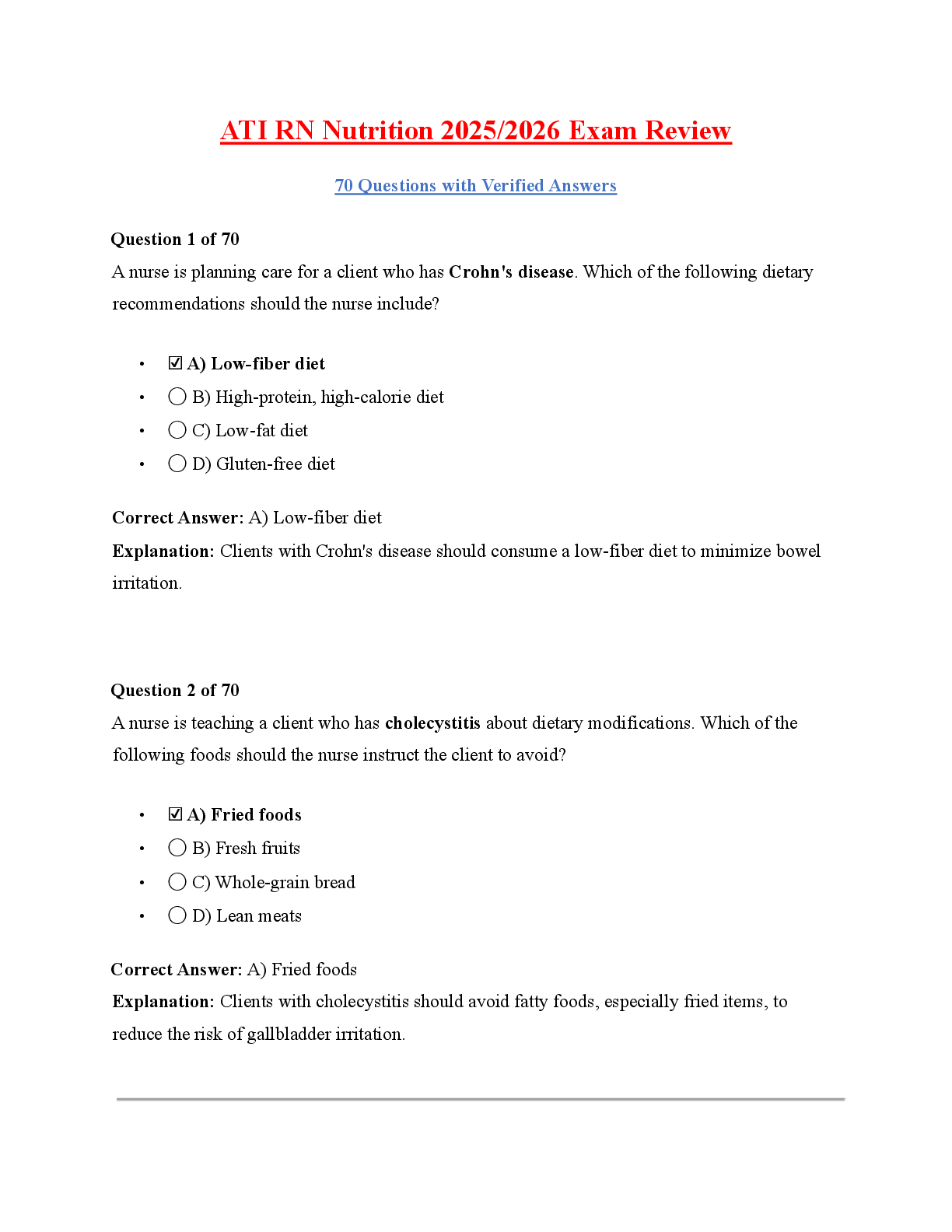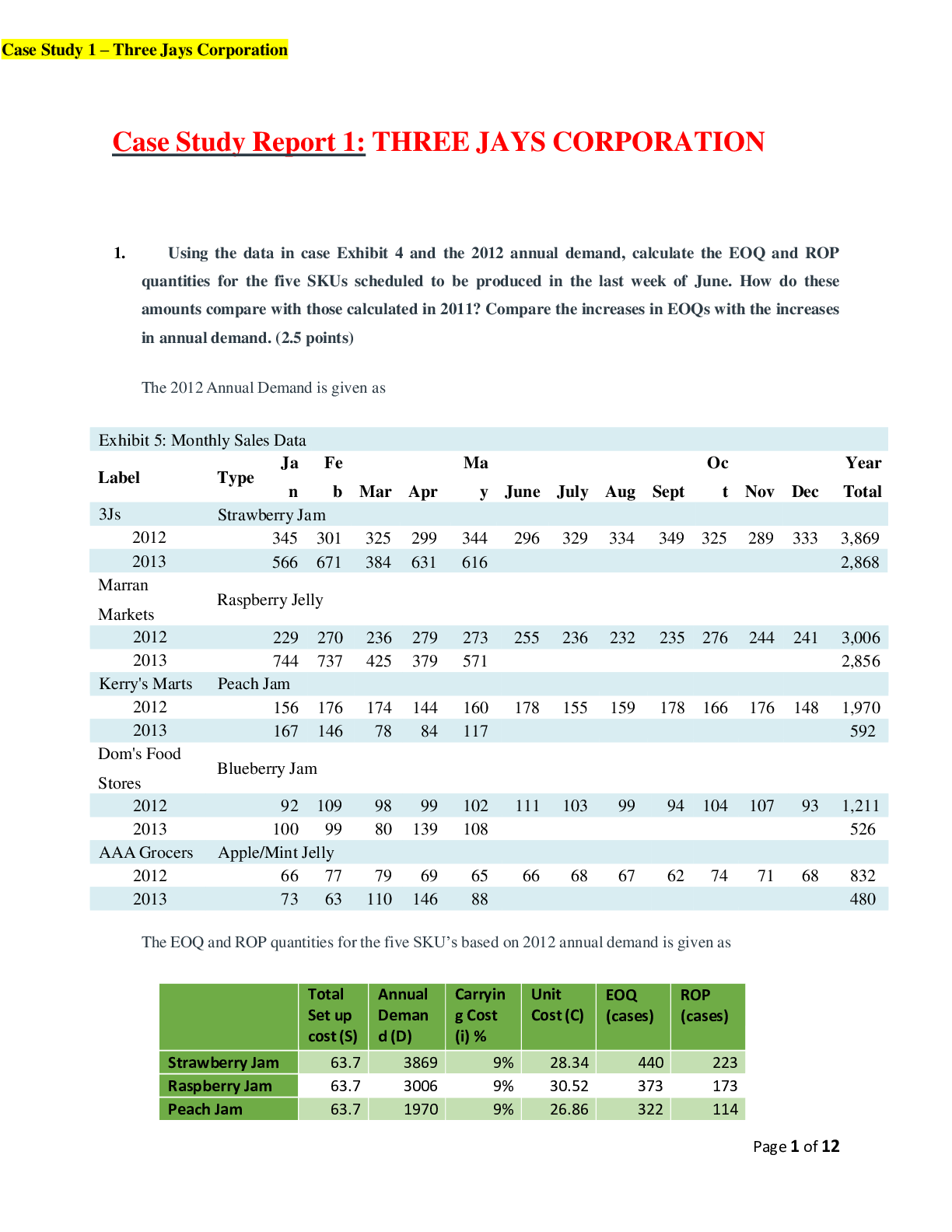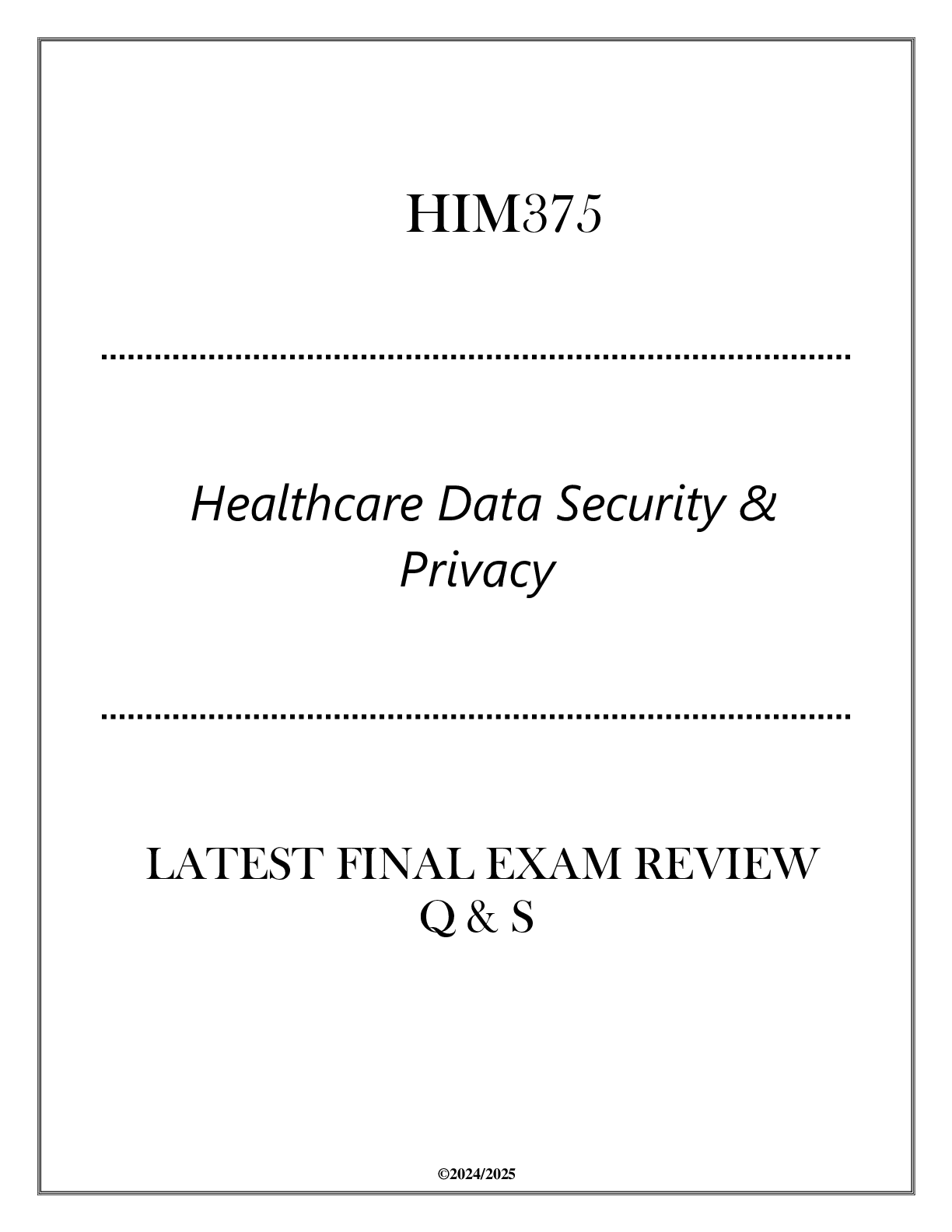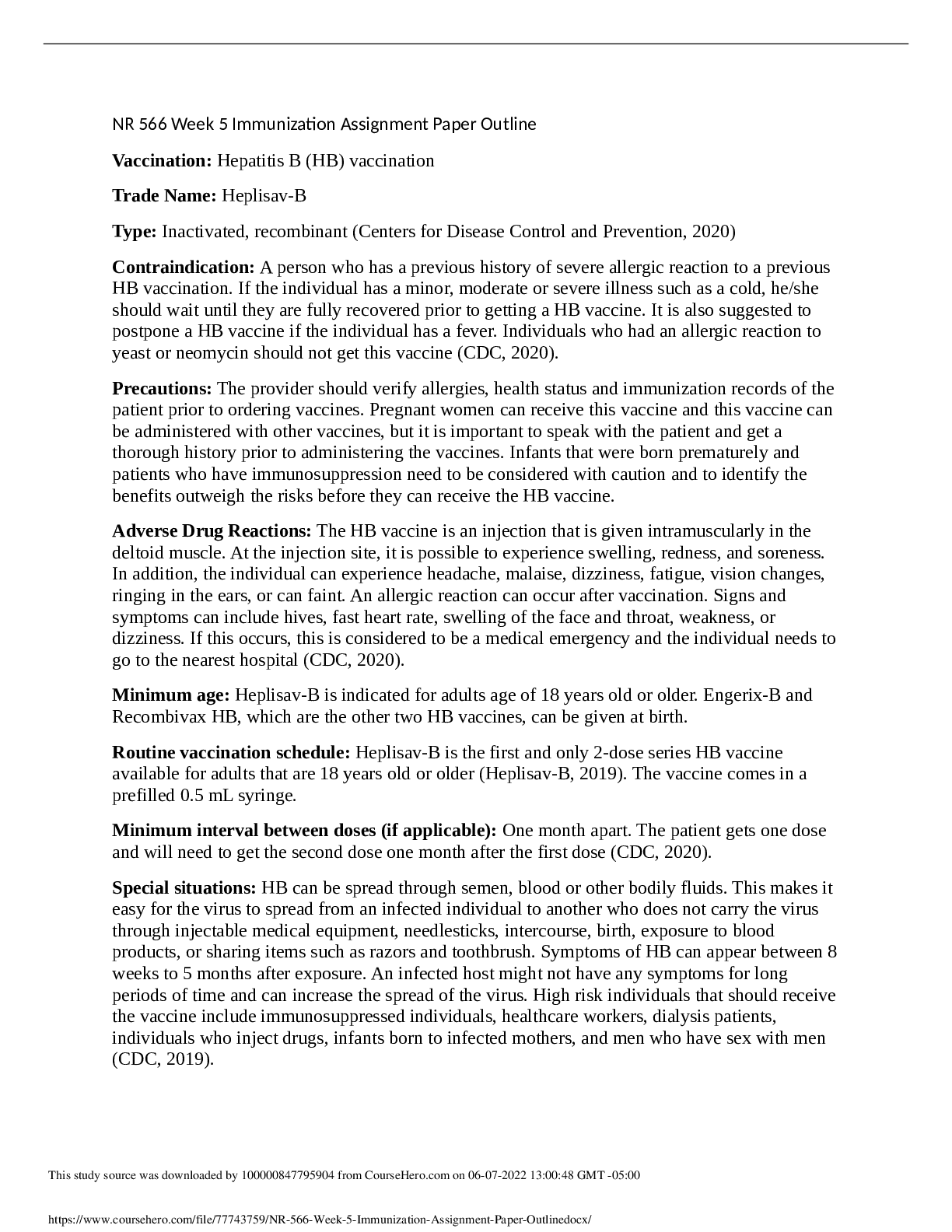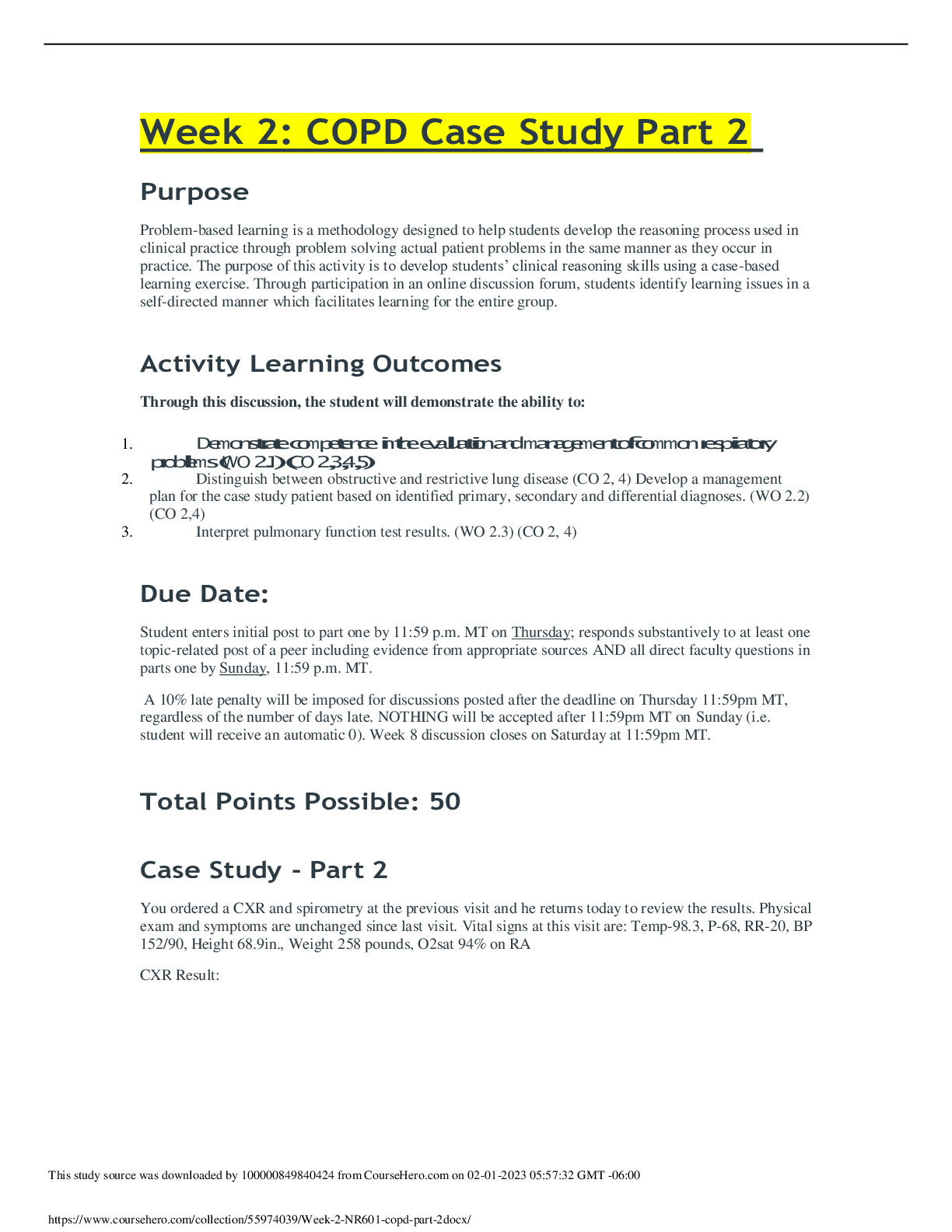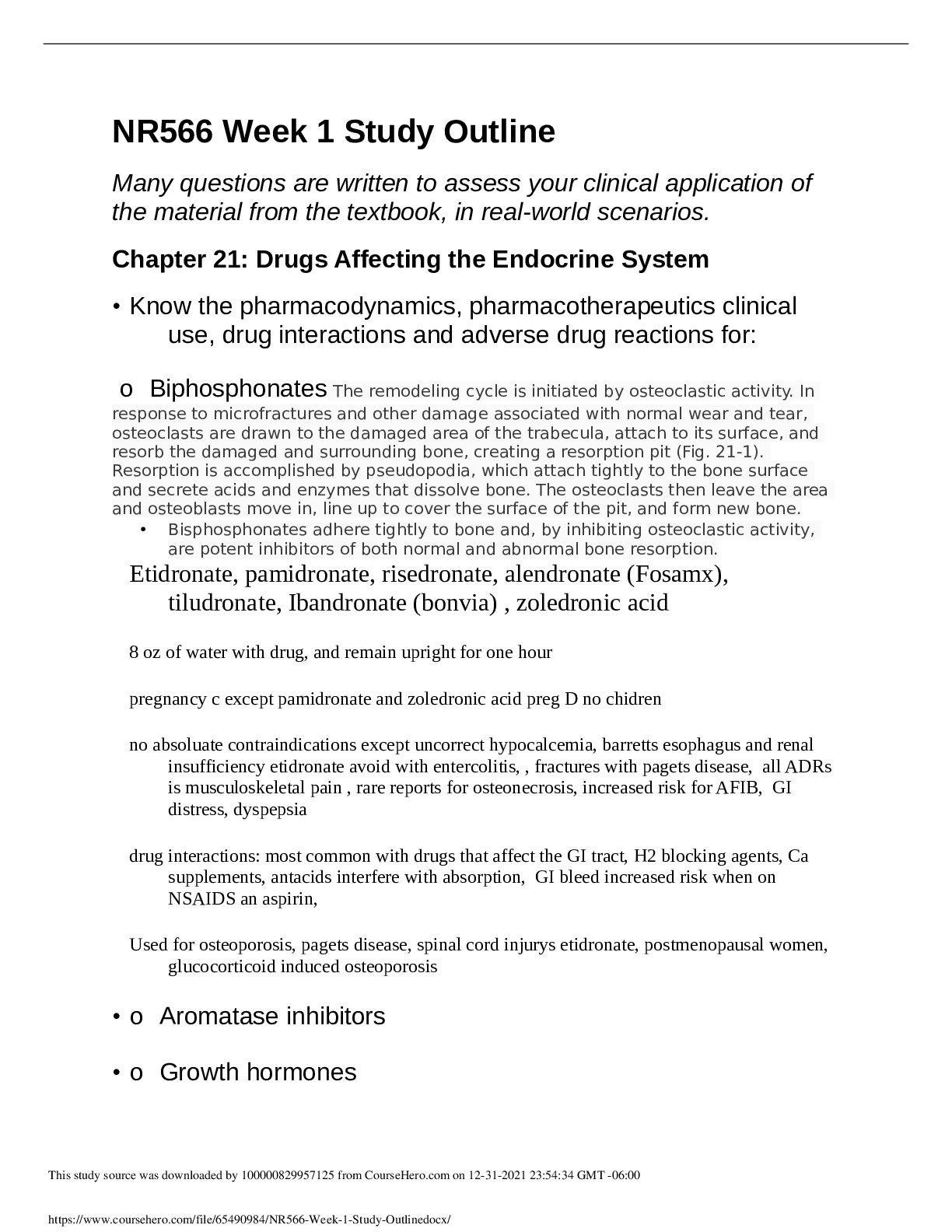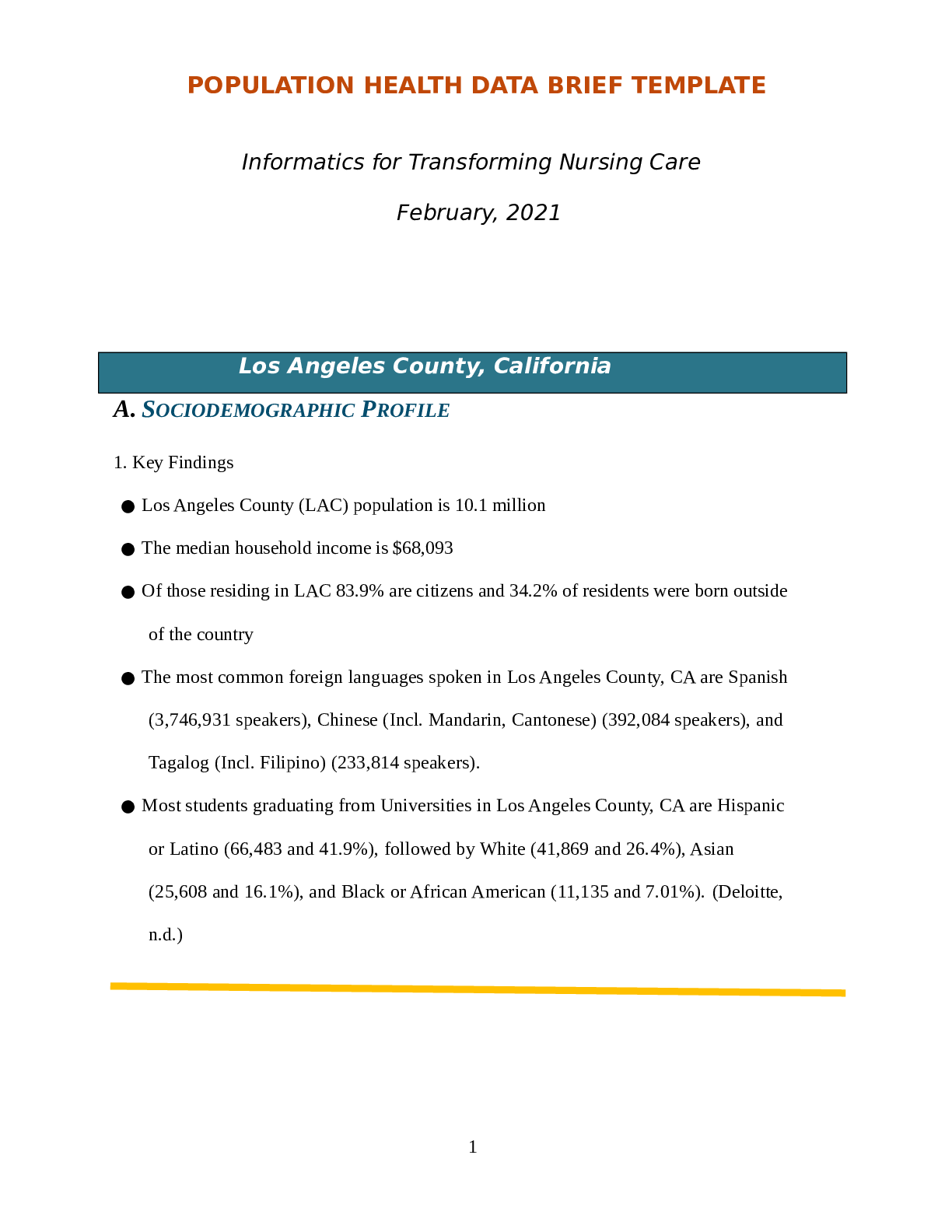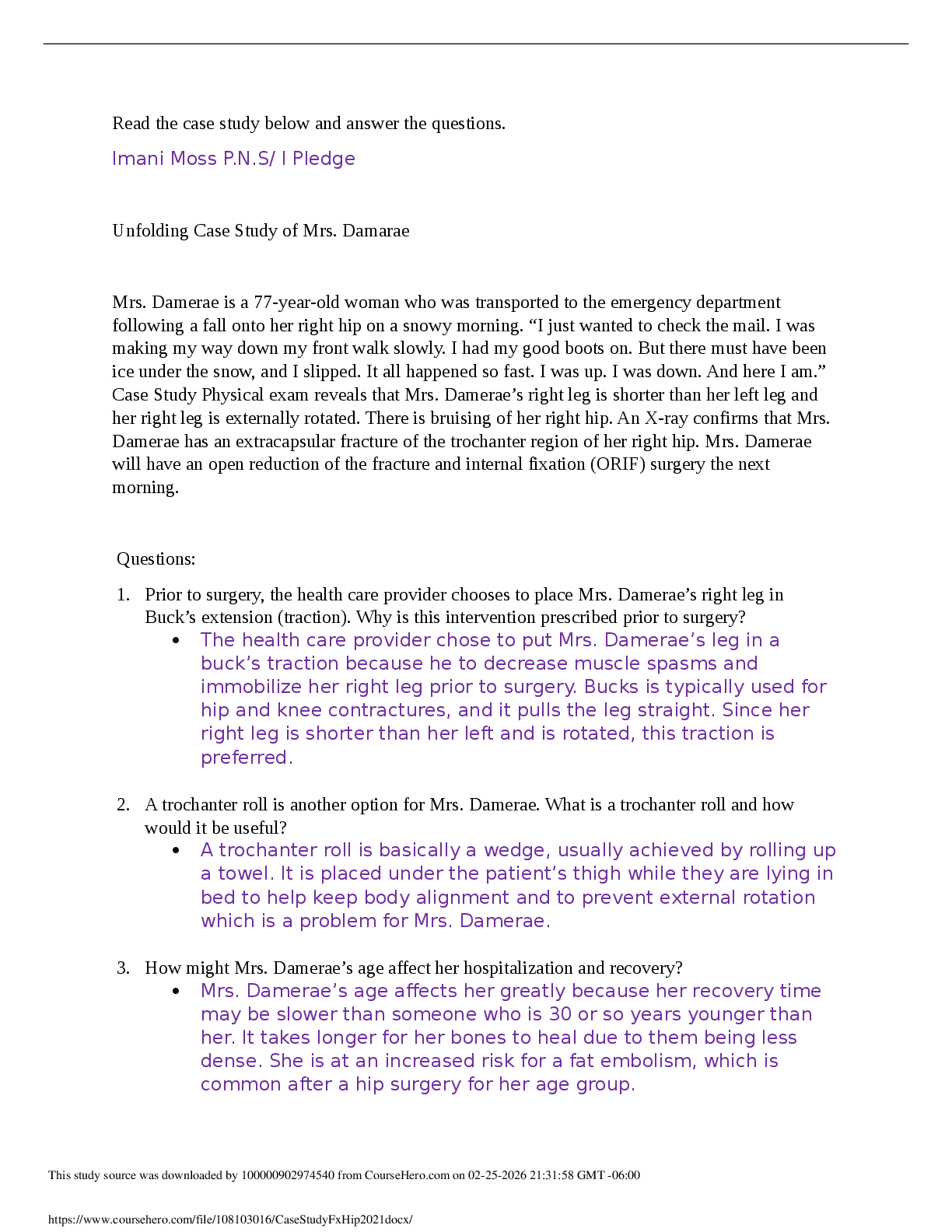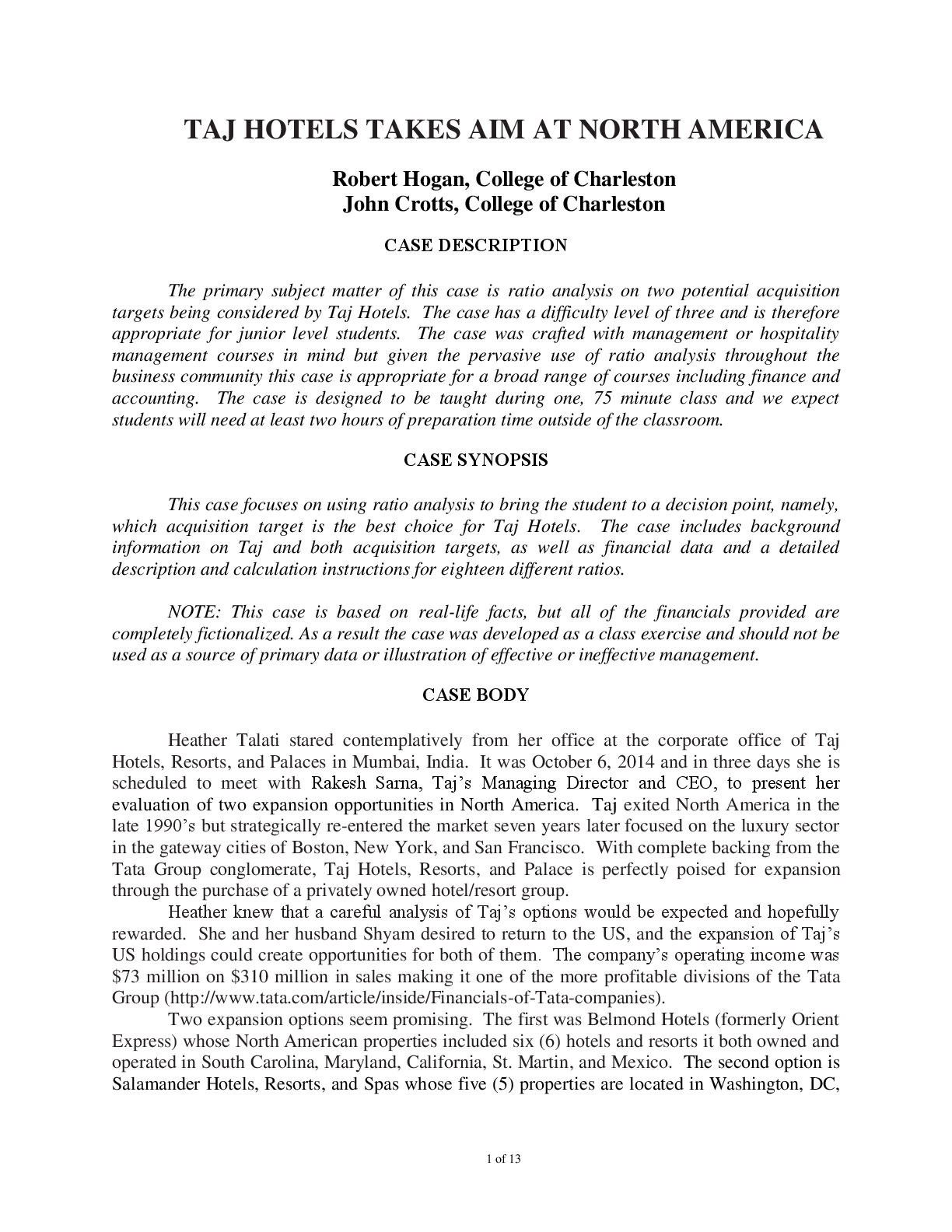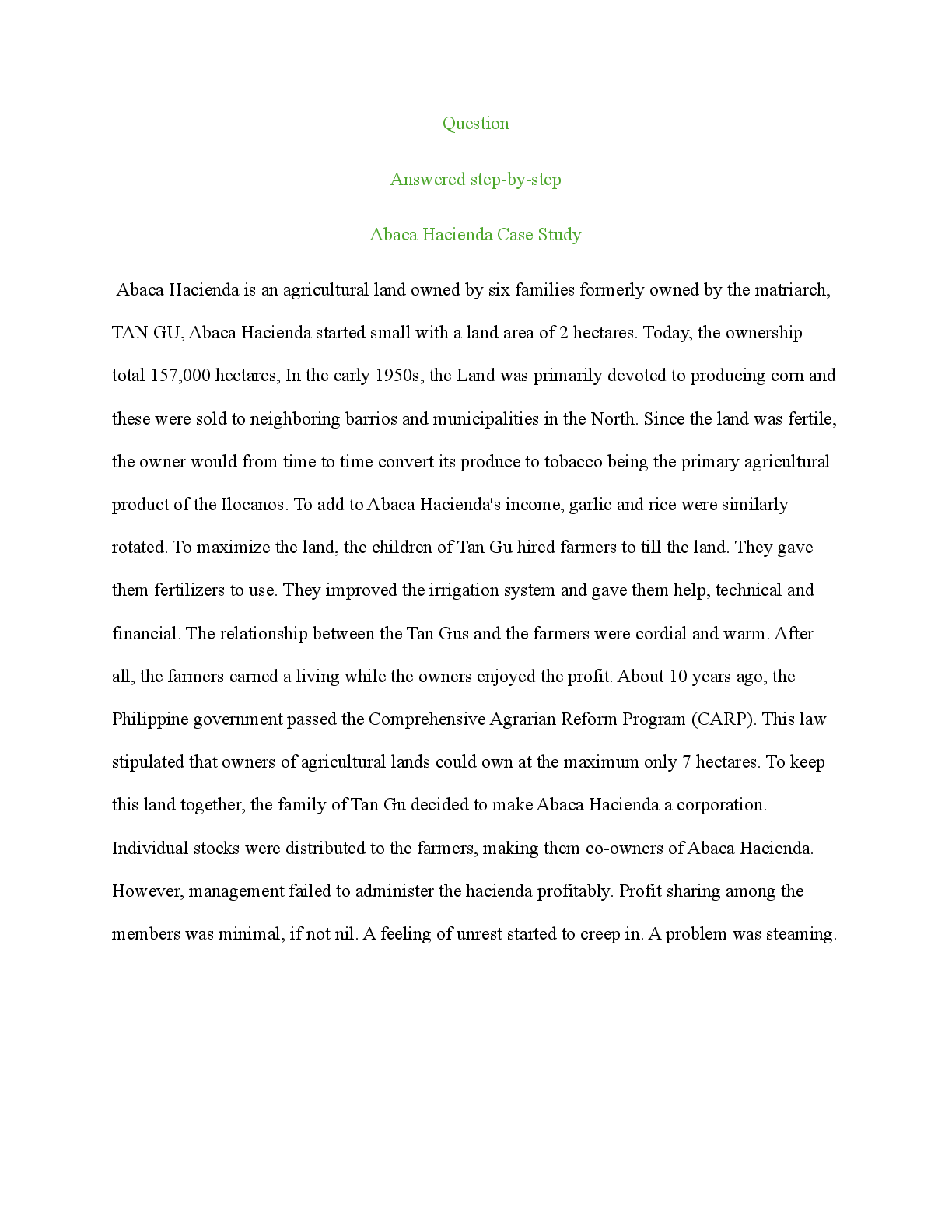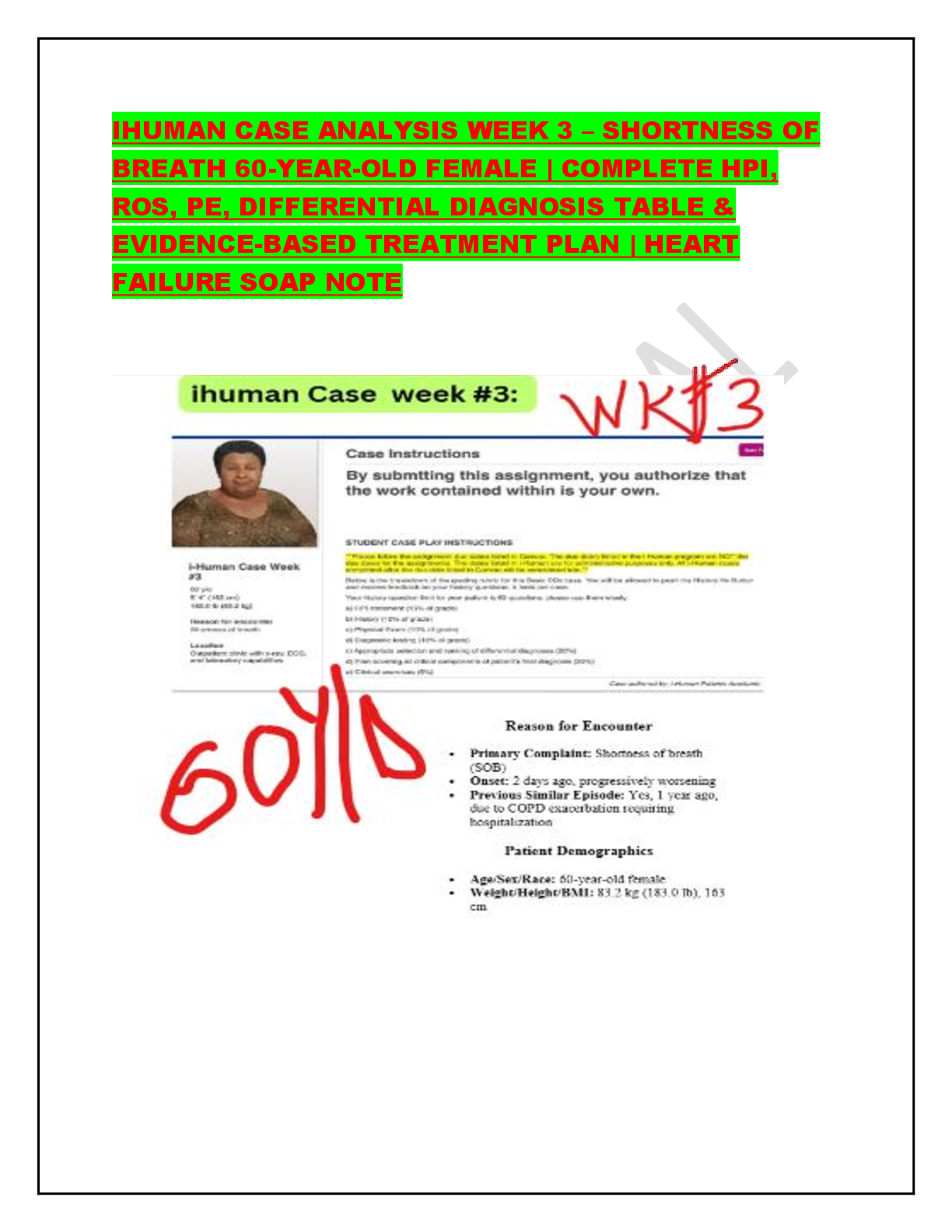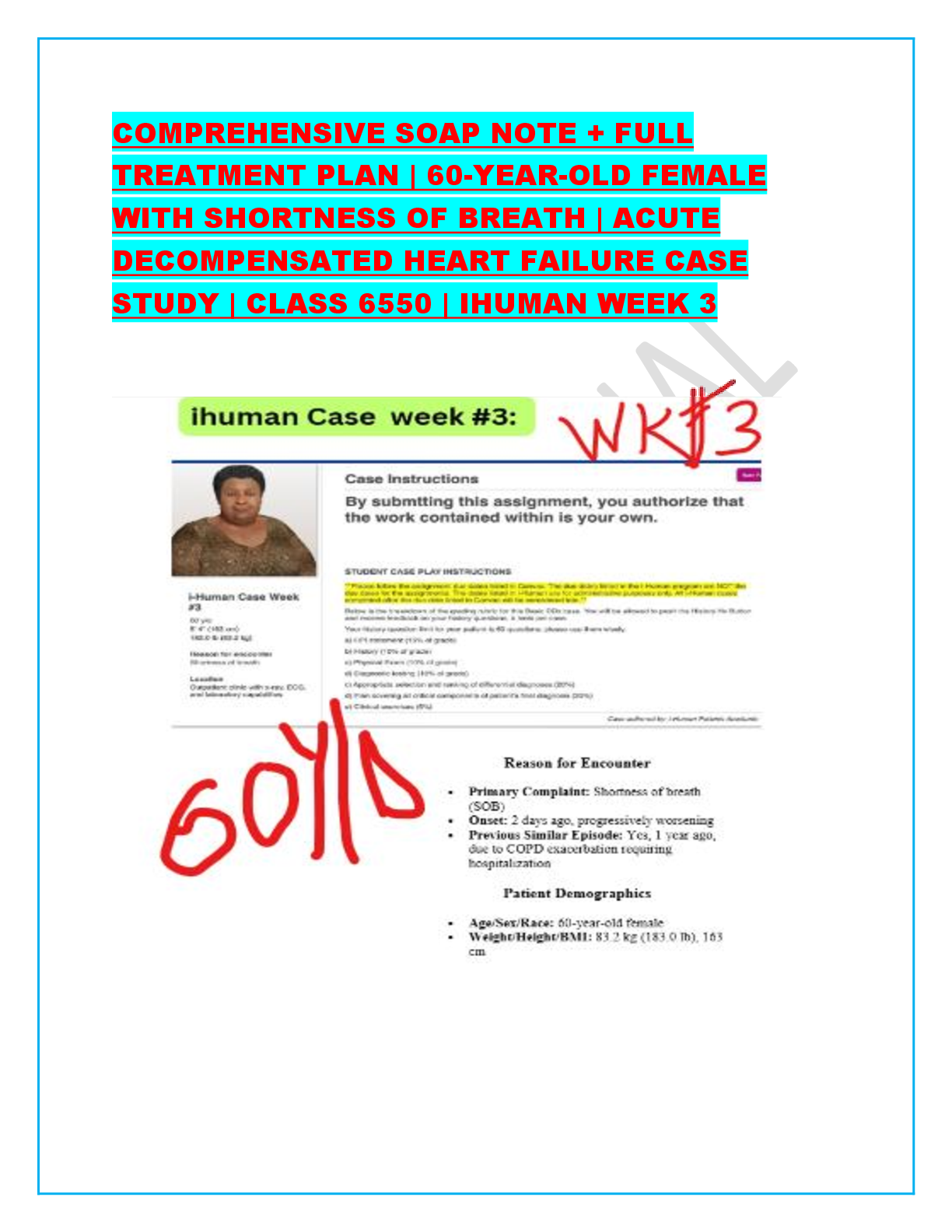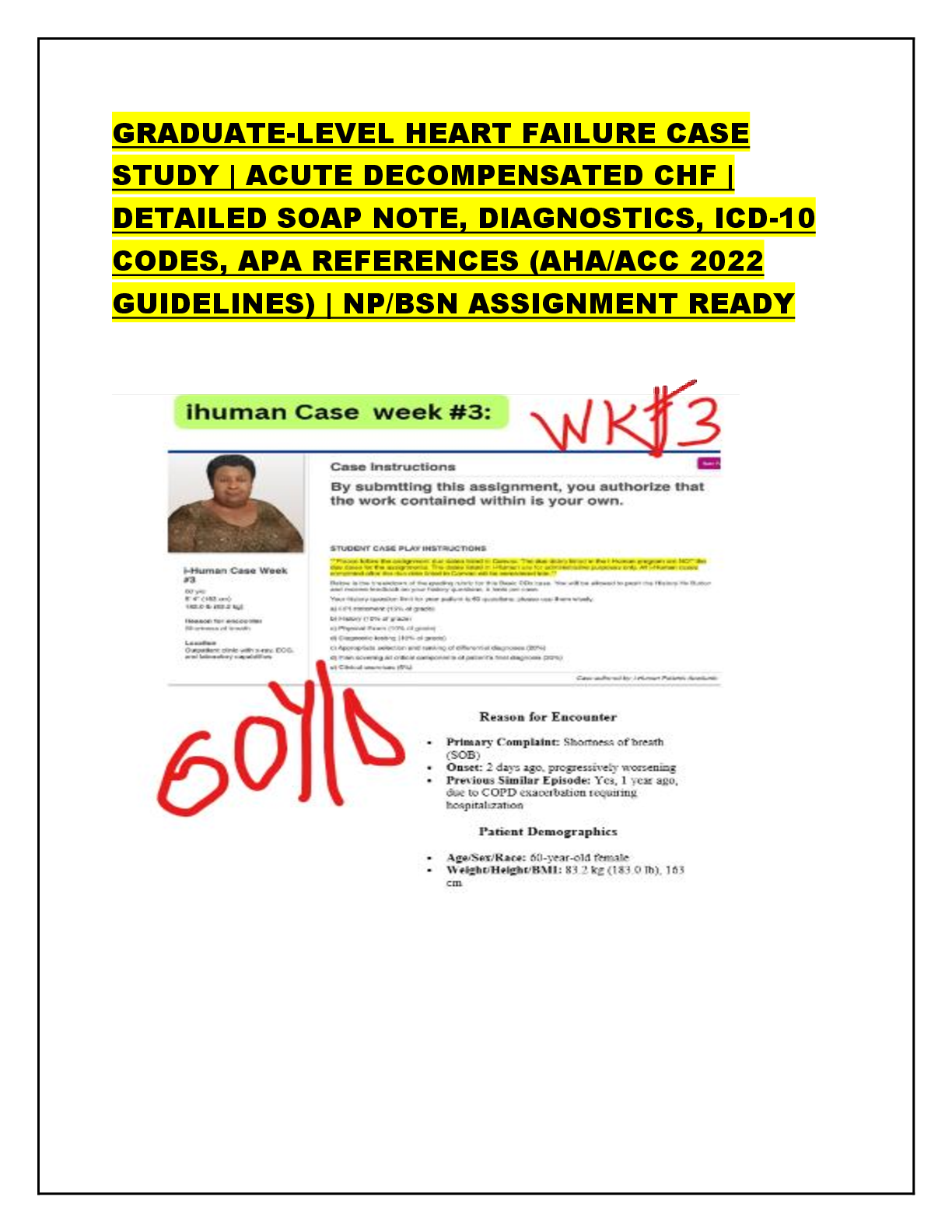Evolving Case Study
Chamberlain University NR 535
Theoretical Foundations & Instructional Strategies for the Nurse Educator
NR 535: Theoretical Foundations and Instructional Strategies for the Nurse Educat
...
Evolving Case Study
Chamberlain University NR 535
Theoretical Foundations & Instructional Strategies for the Nurse Educator
NR 535: Theoretical Foundations and Instructional Strategies for the Nurse Educator Template for Week 6 Assignment
Overview of Evolving Case Study
• Purpose
• Identify type learner
• Learning objectives
• Description of the case study and the setting • The purpose of this case study is to educate new graduate RN, BSN orientees who have been
newly hired to a telemetry step down unit on the care of a patient with heart failure.
• At the end of this case study the learner will be able to interpret diagnostic testing indicative of
heart failure.
• At the end of this case study the learner will be able to identify complications related to undiagnosed hypertension.
• This case study will take place in groups of 3 within a classroom setting at the hospital in
which the nurses have been newly hired.
Description of Patient
Name Donald Duck
Gender/Age/Weight/Height Male/52y/220lbs/5’11”
Allergies PCN
Past medical history Gout
History of present illness Presented to ER with complaint of headache with blurred vision with onset approx. 2 hours prior to arrival at ER unresolved with Tylenol and Motrin. Brought to ER by
spouse. No PCP
Social history Married x 30 yrs, 2 adult children, works full time in construction, smokes 1ppd x 25 yrs, social drinker 5 drinks
per week
Primary medical diagnosis Malignant HTN
Surgeries and/or procedures with dates Appy approx. age 7, choly 2009
Report that Learners receive to prior start of the Evolving Case Study using SBAR Format
Time of report 07:00
Person providing the report Amanda RN
Situation Patient presented to ER by private vehicle accompanied by spouse with
complaint of headache and blurred vision at 22:30.
Background Patient has not been seen by a PCP in greater than 5 years. Patient
reports increasing number of headaches over the last 2 months.
Assessment B/P in ER 238/126, HR 96, R 24, T 97.6, SpO2 96%. Lung sounds clear, HR regular, no edema present, Clonidine 0.3mg administered in ER at 23:20. No chest pain or shortness of breath reported. Telemetry
monitor placed in ER.
Recommendation Patient admitted to unit at 03:30 for blood pressure monitoring and cardiac workup. Patient made comfortable upon arrival. 20g IV in left hand @ TKO, telemetry monitor in place with normal sinus rhythm.
Clonidine 0.1mg ordered every 6 hours for B/P >160/90 and O2 @ 2L/NC PRN. V/S at time of admission to unit 168/84, HR 82, R 20, T 97.4, SpO2 97%. Labs drawn in ER with the following results: H/H
12.1/36.0, CK 34, CKMB 1.8, Trop 0.02, BUN 35, Creat 1.8
Evolving Case Study Progression
Stage One (Start of the case study) Evolving Case Study Information to be presented to the Learner Actions Learners Should Demonstrate Critical thinking questions
Nothing is needed in this column Patient sitting on side of bed leaning forward on bedside table in tripod position. Accessory muscles being used for respirations Assessed heart and lung sounds, vital signs and placed O2 on patient 1. What factors could be contributing to the sudden onset of shortness of breath?
2. How could the patient’s long term smoking habit contribute to the current
shortness of breath?
Trigger for Stage Two: During assessment patient reported he has difficulty lying in bed and has been sleeping in the recliner for approx. 2 months. Called MD with new orders for CBC, CMP, BNP, chest x-
ray, EKG, troponin, CK, CKMB and echo
Stage Two:
Deterioration in fictional patient’s health status Evolving Case Study Information to be presented to the Learner Actions Learners Should Demonstrate Critical thinking questions
Nothing is needed in this column Patient sitting upright in bed with oxygen in place. Audible crackles noted with respirations. 2+ pitting edema noted to BIL lower extremities from toes to knees. Assess heart and lung sounds, vital signs. Heart sounds noted to be distant and lung sounds noted to have fine crackles throughout all fields. Elevated lower extremities. Reviewed diagnostic tests.
Chest x-ray revealed cardiomegaly. Lab
values revealed 1. What is the effect of cardiomegaly on pulmonary function in a patient with heart failure?
2. How does the patient’s lifestyle contribute to CHF and malignant HTN?
[Show More]
